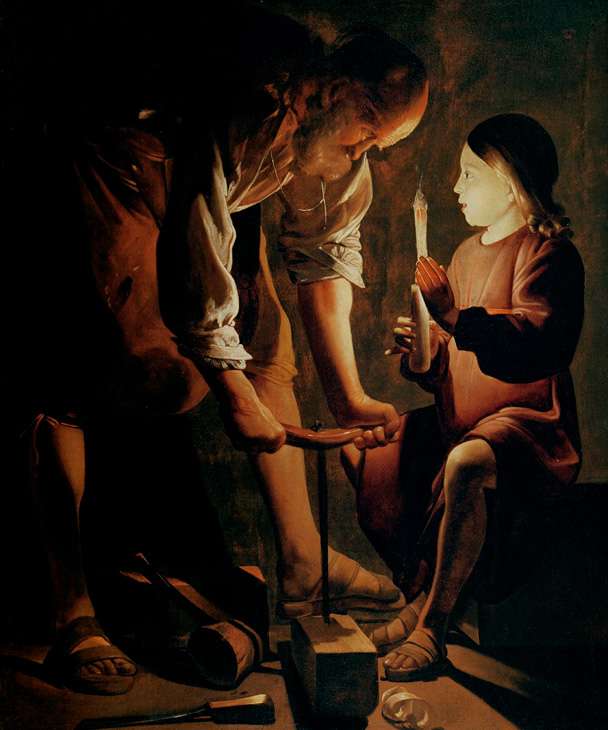God never ceases to act in the world. Even when times seem darkened, He proposes new beginnings – and these new beginnings are, in fact, the very essence of Christianity.

From baptism onwards, every Christian is called to holiness. This calling is not something vague or distant; it is a concrete summons to a change of life, of mindset, of heart. And this personal change is necessary so that the world might change too. From the earliest centuries, Christians took this call seriously. They faced persecutions, were martyred, and transformed the world, even converting the Roman Empire.
Over time, the number of Christians grew significantly. Being Christian became customary in many places, and a new phenomenon emerged: the “non-practising Christian.” A strange term, if we consider that the first Christians risked their very lives to live out their faith.
Amid this spiritual cooling, God acted once again: the Holy Spirit was poured out powerfully, and many men and women devoted themselves wholeheartedly to the pursuit of holiness. It was from this context that monks and monasteries arose, which would go on to safeguard the faith and even civilisation itself in times of barbarism.
However, the secluded life of monks led many to believe that holiness was only possible if one became a priest, nun, or religious. This mentality endured for centuries… until, in the 20th century, the Second Vatican Council brought renewed clarity: everyone is called to holiness.
In the Constitution Lumen Gentium, the Church reminds us that “Christ is the light of the nations” and that the Gospel must be proclaimed to all and lived by all. A lay person, living out their vocation in the world, is called to be holy just as much as a priest or religious.
Saint Josemaría Escrivá strongly reaffirmed this teaching: all men and women must seek holiness in the midst of the world, in their work, in their families, in the ordinary circumstances of daily life. But why, then, do we still associate holiness with a certain withdrawal from reality?
Perhaps because we forget that Jesus and Saint Joseph were carpenters – simple people who lived by their work. Mary, in turn, led a life closer to that of our own mothers and wives than to that of a religious sister. And yet, they were the most perfect saints.
Think of Saint Joseph in his workshop, keeping track of expenses, dealing with customers, facing difficulties, and then having to flee to Egypt to protect his family. All of this formed part of his path to holiness. Ordinary life concealed an extraordinary calling.
When we think of holiness, we often fall into the trap of romanticising the saints. But they were human – with struggles, flaws, and difficulties. Saint Paul had a fiery temperament and quarrelled frequently (with Peter, Barnabas, etc.). Saint Thérèse of the Child Jesus was melancholic. Saint Josemaría Escrivá admitted his mistakes and apologised for them.
Our Lady lived the ordinary with perfection. She is proof that God reveals Himself in the everyday, in silence, in fidelity, in common life.
Holiness is not reserved for extraordinary moments but can (and should) be lived out in small gestures: in work well done, in attention to one’s children, in faithful prayer, in caring for others. As Saint Josemaría said: “Each person’s life must be a song of thanksgiving.”
Our everyday life is the stage where Christ wishes to manifest Himself. That’s why we should ask ourselves:
- How can I show holiness to my children?
- How can I make my work an offering to God?
- In what environment can I best represent Christ?
The Rosary, for example, is a powerful tool for inner struggle — but holiness also demands action. Kind words are not love; deeds are.
Point for reflection:
It is more accessible to be holy than to be wise, but it is easier to be wise than to be holy.
Consider: how much effort do we dedicate to human achievements? How many years does someone study to win a Nobel Prize? And yet, anyone can become a saint, whereas not everyone can win a Nobel. Why then do we exalt human recognition more than the glory of heaven?
Yes, holiness is accessible, but it is not easy. It demands effort, dedication, daily self-giving. Holy work does not mean neglecting one’s duties, but performing them with love and integrity. To sanctify a family does not mean merely praying every day, but living out concrete love, service, listening, patience, fidelity. Holiness is not theory: it is life made flesh.
Jesus gave us the model. The Holy Spirit guides us. Holiness is not about copying a saint but striving to imitate Christ, as the saints did. There is no ethereal holiness outside reality. Work is a path to sanctification. Our daily duties are God’s call. Each new day is an invitation to participate in His plan.
Within each of us there is something divine, and we must find it in the midst of everyday life. Christ is the way. And to follow Him, we need a spiritual plan of life: prayer, sacraments, listening to the Word, spiritual direction, vigilance.
There are many forms of piety, different vocations and paths — but all can walk with God everywhere. It is enough to be attentive to the inspirations of the Holy Spirit.
At Cana, Mary left a clear message for all humankind:
“Do whatever He tells you.”
That is it. The call to holiness is real, urgent, and possible. It requires commitment, but it is worth it. If we wish to look to Christ, we must walk our path guided by Him.
